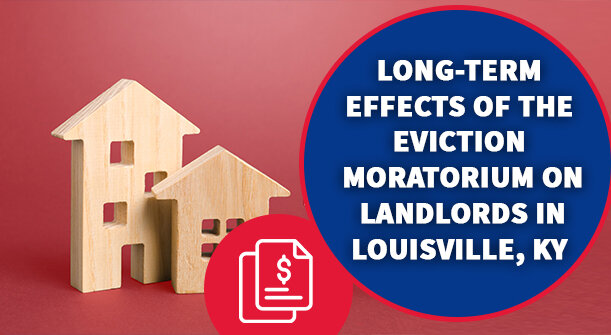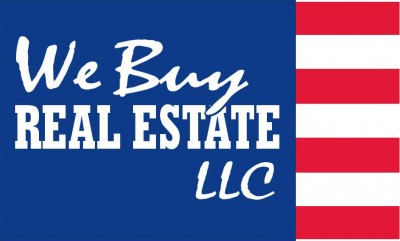
It’s been more than a year since the eviction moratorium went into effect, preventing landlords nationwide from evicting non-paying tenants from private properties – mainly rental houses. While the current Presidential administration was seeking an extension into October, the Supreme Court recently banned the moratorium, citing that the CDC did not have the authority to enforce this type of policy.
While the moratorium has helped millions of households in economic crisis, it has simultaneously put financial pressure on landlords in Louisville and throughout Louisville, Kentucky. Landlords unable to pay their mortgages face foreclosure or bankruptcy. Those managing to stay afloat financially may still find it difficult to find a qualified tenant, as millions of renters are still without a job and enough income to afford the monthly rent.
What is the Eviction Moratorium?
The eviction moratorium was recommended by the CDC and passed by Congress in March 2020 as part of the CARES Act. Under the moratorium, renters could be exempt from paying rent if they:
- have used their best efforts to obtain governmental rental assistance.
- expect to earn no more than $99,000 in 2020 (or no more than $198,000 if filing a joint tax return), were not required to report income in 2019 to the IRS, or received an Economic Impact Payment (stimulus check) under the CARES Act.
- were unable to pay the full rent or make a full rent payment due to substantial loss of income, loss of work hours, lay-offs, or extraordinary out-of-pocket medical costs.
- are using their best efforts to make partial rent payments.
- an eviction would result in homelessness or force them to double or triple up with other households.
The original eviction moratorium was scheduled to end in October 2021. However, the Supreme Court recently banned the moratorium, citing that it was unfair to landlords and that the CDC did not have the authority to impose a ban on evictions. It should be noted that the CDC recommended the moratorium as a way to slow down the COVID-19 pandemic. Regardless of the reason, landlords across Louisville have been severely impacted by the moratorium.
Long-Term Effects of the Eviction Moratorium
Now that the eviction moratorium has ended, what are the long-term effects on landlords?
Finding Qualified Tenants
Louisville, Kentucky has been hit hard by COVID-19. Many people have lost their jobs and have been unable to recover quickly from the pandemic and the economic fallout. As a result, finding qualified tenants that can keep up with rent, utilities, and other expenses is going to be an uphill climb for landlords.
Avoiding Bankruptcy or Foreclosure
Without monthly revenue from rent payments, many landlords have found it difficult to make their mortgage payments. Pressure from lenders has caused many landlords to face foreclosure or bankruptcy. This means losing rental property, which also means losing residual income each month.
Permanent Rent Loss
Many landlords have not received a rent payment in over a year. As a result, they have lost thousands of dollars in revenue that they will never see again. Renters may be able to catch up on a month or two of late payments. However, most will be unable to catch up on a year’s worth of late payments. This is money that landlords will never see.
Additional Expenses
Renting out a property can be an expensive venture. Once the non-paying tenants finally move out, landlords will have to spend thousands of dollars on property repairs and upgrades. Any landlord looking to sell their rental house on the market will have to spend more on selling costs such as realtor commissions and closing costs.
How to Sell Your Rental House After the Eviction Moratorium
If you are a landlord in Louisville, Kentucky, and you can’t keep up with your rental property, you may need to sell your rental house fast to avoid financial hardship, foreclosure, or bankruptcy. Fortunately, there is a way to sell your house as-is without incurring thousands of dollars in selling costs.
You can sell your house directly to a buyer in Louisville, Kentucky. We Buy Real Estate can look at your rental property, make a cash offer, and close on the sale in as little as seven to 21 days. The process of selling your house is easy.
Step 1: Contact Us
Before you contact a real estate agent, call us first. You can schedule a quick walkthrough of your property whenever it is convenient for you. There is no obligation or pressure to sell. We can look at the property and decide if we want to buy it. If so, we will make an offer.
Step 2: Get a Fair Cash Offer
If we like what we see, we’ll make a fast cash offer within 24 to 48 hours. You don’t have to wait for several days to land a deal. We make a fair offer that is just below your house’s current real estate market value. Once we make an offer, we never change it.
Step 3: You Get Paid
If you accept our offer, we schedule a closing date that is convenient for you. We show up, sign the paperwork, and pay all closing costs. You can close in as little as seven days. Working with us is easier than selling your house in the traditional way.
Contact We Buy Real Estate to Sell Your House Fast
You don’t have to wait to unload your property. If you need to sell your house fast in Louisville, Kentucky, contact We Buy Real Estate. We can look at your property, make an offer, and close in as little as seven days. Call (502) 458-2722 and get a fair cash offer.

